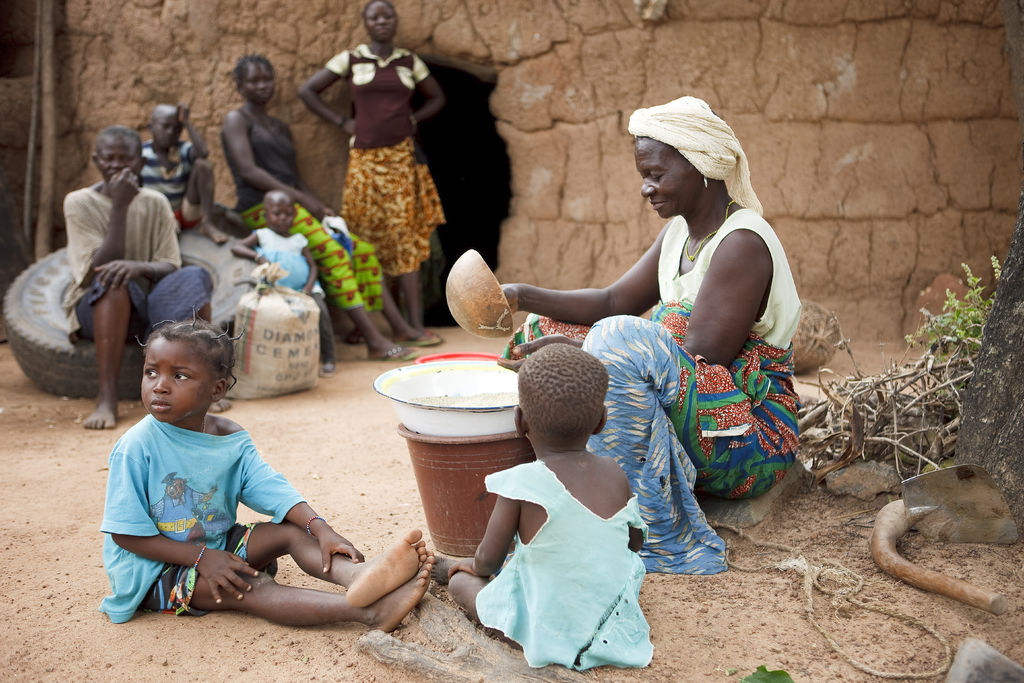The cabinet is drastically reducing development aid budgets. In the coming years, the funding will be cut back from 6.3 to 3.9 billion euros. Many education and research projects will be terminated.
Dutch interests must be prioritised in development aid, says PVV Foreign Affairs minister Reinette Klaver in a letter addressed to the House of Representatives. ‘In time, we will terminate projects that focus on gender equality, vocational and tertiary education, sports and culture’, the minister states.
This step was included in the governmental programme, which states: ‘In the domain of development aid, the cabinet will focus on themes in which the Netherlands has expertise or interest, such as water management and food security.’ In the eyes of the cabinet, the Netherlands has a smaller stake in development aid related to education and research.
The budget for development aid had some 70 million euros earmarked for education. That sum will disappear entirely. Klever writes that there will be ‘no long-term, vocational and tertiary education programme including grants in Africa. The previous cabinet announced such a programme.
Orange Knowledge
The cabinet’s new course is already felt. Nuffic, the organisation that focuses on the internationalisation of education, terminated the so-called Orange Knowledge programme after seven years.
This programme awarded just under 10,200 research and education grants, as well as facilitating training and partnership programmes. It was active in Africa, Asia, South America, and the Middle East and focused on issues such as food safety, the rule of law, sexual health, and water.
Ambassadors
Terminating these grants affects, among others, the International Institute of Social Studies (ISS) at the Erasmus University in Rotterdam, which attracted many students from developing nations. The number of students will be reduced by half, from 150 to some 75.
Ruard Ganzevoort, the institute’s rector, who served as a senator for GroenLinks until recently, argues that the cuts in development aid undermine Dutch interests. These education programmes provide the Netherlands with ambassadors across the globe, he states, ‘and that is what we are now terminating.’
The ISS is now investigating whether it can attract other students who can afford to pay their own way or receive a grant from their native country. However, it is mainly the African students who are now cut out while the cabinet aims to increase its business with African countries. Ganzevoort: ‘Dutch businesses will also require well-educated employees there, and if they have been trained here, they are better able to follow the Dutch way of thinking.’
Wageningen
Wageningen, too, will feel the effects. A research group for innovation and development aid, which has some eighty staff members, is already reorganising, says researcher Bart Steenhuijsen Piters. ‘A huge chunk of our funding is lost.’ A significant number of employees will have to leave or be otherwise employed, and temporary contracts will not be extended.
Earlier, Steenhuijsen Piters called the cutbacks in development aid a tragic, missed opportunity. Development aid has become a target for austerity measures following criticism from politicians on both sides of the aisle. ‘The right claimed the aid to be ineffective, wasted money that could have gone towards internal issues. The left stated that personal gain prevailed and that aid was a post-colonial method to impose our agenda and safeguard our economic interests.’
Hundreds of students
Other universities also conduct studies on development aid (of partnerships). A new professor in anthropology and development studies was appointed, whose tenure starts on 1 March. He comes from the University of Amsterdam, where such research is also done.
There are some 1600 university students in the Netherlands following a bachelor in cultural anthropology and development studies, distributed over the two universities in Amsterdam, Nijmegen, Leiden and Utrecht. Additionally, there are 244 students enrolled in international development studies in Wageningen. Van Hall Larenstein university college offers a programme in international development management. How the cabinet’s budget cuts will affect the popularity of this programme remains to be seen.

 Photo: Shutterstock, Hector Conesa
Photo: Shutterstock, Hector Conesa